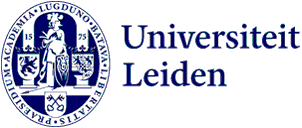
PhD candidate reveals link between North Korea and southern Africa
North Korea is generally thought to be an isolated country. But, according to PhD candidate Tycho van der Hoog from Leiden’s African Studies Centre, the opposite is in fact the case. North Korea actually has strong alliances with countries in southern Africa. Van der Hoog is trying to shed more light on this. As a new member of the Faces of Science project, he blogs about it and about how he is intending to provide evidence for these links.
Very little is known about the connection between North Korea and countries in southern Africa. And the countries want to keep it that way because sanctions by the United Nations prohibit trade and alliances with North Korea.
Faces of Science
Faces of Science is a project of the Royal Netherlands Academy of Arts and Sciences, the Young Academy and NEMO Science Museum. Young scientists give people a glimpse into their research and their lives as scientists via blogs, vlogs, video clips, articles and lectures. From March, Tycho van der Hoog is one of the twelve new Faces of Science.
How did the alliance between North Korea and the southern African countries come about?
‘The alliance is mainly the outcome of the Korean war in the fifties and the process of decolonisation in Africa. After the war, Korea was divided into North and South. Both sides realised that they needed international partners to strengthen their claim as legitimate governments. North Korea decided to focus on the African continent. At that time, the sixties, many African countries were in the process of becoming independent. North Korea supported the liberation movements and invested in the countries. That proved to be a very astute strategy because many of those freedom movements are in power today and remember the support they received from Korea.’
'During their independence struggles, many African countries acquired weapons at little or no cost from North Korea.'
How are they now repaying that support?
‘North Koreans are hired to train army units and to repair and update weapons. During their independence struggles, many African countries acquired weapons at little or no cost from North Korea. Today, they are still using outdated systems that are at some point in time bound to fail. Even today, few countries have the ability to make the necessary repairs themselves. The hard currency that North Korea gains from this alliance is a lifeline for the regime since there are few avenues open to North Korea to earn money legally in the international arena.’
What methods do you use in your research?
‘I use a number of different methods. I carry out research in archives on four continents, which I need to do because each archive contains just a small part of the overall puzzle. Sources are difficult to find because the relationship I describe is very sensitive. And sources from this kind of liberation movement are hard to trace because of the chaotic nature of these conflicts.’
‘I’m also interviewing people who have had an influence on the relationship between the different countries. I interviewed a fugitive North Korean diplomat who has worked in several African embassies. And lastly, I use OSINT (open source intelligence) techniques, which is a set of digital techniques for finding information that is available online. These could be satellite images, databases and social media. It’s fascinating, for example that North Korean companies have online catalogues of their services. This is all data that you can use to map out the relationship.’
'I want to show that international archive work is fascinating and interesting.'
What are your blogs on Faces of Science about?
‘I talk about the connection between North Korea and Africa, the history and the methods needed to open up this kind of story. That’s something I find interesting and I hope I can inspire other people with their study choices and maybe encourage them to embark on a career in science. I want to show that international archive work is fascinating and interesting: it takes you to new places. The digital methodologies that I use are still very new, but I expect that in twenty years there will be more demand for them at all faculties. That’s something I want to stress in my blog. And I hope the response will be good.’
Text: Dagmar Aarts
Photo: Simone Both
